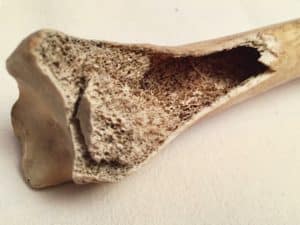Fee Schedule Changes
Effective September 1st 2023, some of our practitioners will be increasing their consultation and treatment fees.
Effective September 1st 2023, some of our practitioners will be increasing their consultation and treatment fees.

Though we all benefit from regulatory oversight that ensures high quality natural health products, increasing fees on Natural Health Products is expected to significantly increase the cost of NHPs for the consumer. It’s very possible that these increased costs will put our smaller suppliers out of business entirely (while the larger manufacturers and distributors like Nestle, remain).



For a broader discussion about Environmentally-Acquired Illness and the impact of environmental toxins on our health, please follow the embedded links and explore some of the additional resources listed below.

Up to 50% of the black-legged ticks in the KFL&A region carry Borrelia, the bacteria associated with Lyme disease.1 Ticks also carry an incredible number of other infections – many of which we’re just starting to understand. Treat every tick bite with immune-supportive measures and know when to request antibiotics from your doctor. Review these updated 2023 guidelines and reach out if you’re uncertain or need additional support.

Multiple Myeloma (MM) is a cancer that starts in plasma cells, which are a type of white blood cell that makes antibodies to help our body fight infection. These plasma cells are found mainly in bone marrow, which is the soft, spongy tissue inside most bones where many types of blood cells are made. Cancer forms when abnormal plasma cells begin to divide uncontrollably and make more abnormal plasma cells. This makes it hard for other blood cells in the bone marrow to develop and work normally, which might cause anemia and fatigue because there are fewer red blood cells.
The myeloma cells (cancer cells) make a substance that leads to bone damage and high levels of calcium in the blood. Myeloma cells also make abnormal proteins that can affect other organs such as the kidneys. Patients usually come with bone pain and osteoporosis, recurrent infections, anemia and fatigue, headache, kidney dysfunction and hypercalcemia.
MM is an incurable cancer and is usually treated with a combination of a proteasome inhibitor, an immunomodulatory agent, and dexamethasone. This combination is associated with a median progression-free survival of 41 months. Our recently published scoping review has shown that Vitamin D deficiency is very prevalent among these patients. Vitamin D supplementation and obtaining a consistent level of vitamin D in the blood might increase survival rate and quality of life, as well as reduce disease progression. So, vitamin D deficiency screening and proper supplementation is highly recommend for the patients diagnosed with MM.
Mirhosseini N, Psihogios A, McLaren MD, Seely D. Vitamin D and Multiple Myeloma: A Scoping Review. Curr Oncol. 2023 Mar 11;30(3):3263-3276. doi: 10.3390/curroncol30030248. PMID: 36975461; PMCID: PMC10047650.
I have women come to see me from 40 to 70 years of age asking about Hormone Replacement Therapy (HRT). Yet, hormones are not the right solution for every woman and not appropriate for all ages. Though every case must be treated individually (e.g. by exploring family history, personal history, and blood work results), there are some general guidelines for initiating HRT.
I have many women arrive at my office asking me to test their hormones in menopause. I often tell them that though I think blood work is a good idea, they may be surprised to learn that hormones aren’t on the top of my list. If a woman is menopausal, meaning it has been a full year without her period, then I can guess with good accuracy what her serum (blood) hormones are currently. Her estradiol (estrogen) and progesterone will both be low and her FSH and LH will be high. In complex hormone cases (e.g. endometriosis, PCOS, early menopause), I will sometimes order a comprehensive urine hormone test to get an overview of a woman’s hormone picture. This test is called a DUTCH test and is a topic for another article, but for most women it is fairly predictable where their reproductive hormones are at in menopause. Let’s break down these hormones for a better understanding.